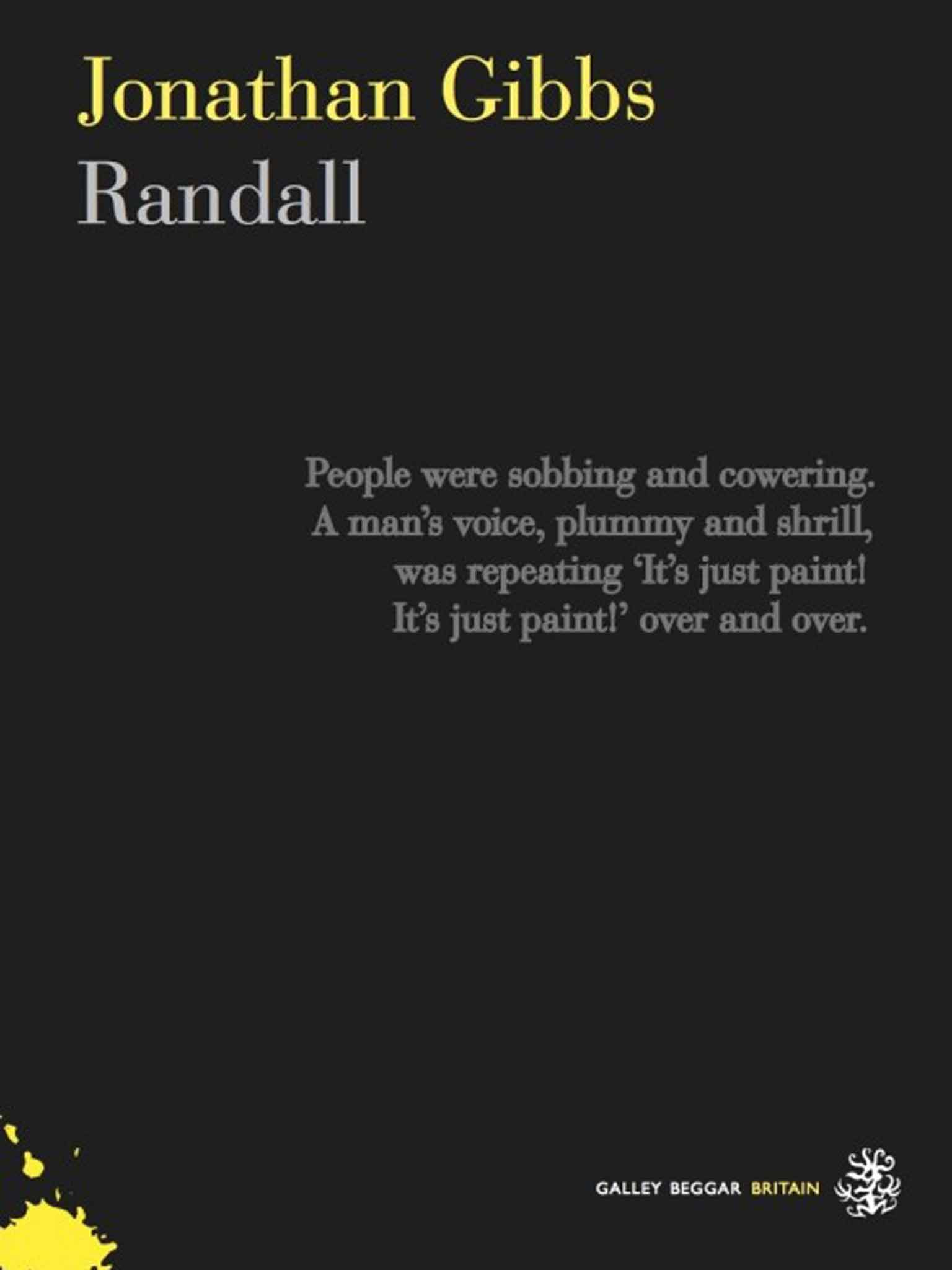Galley Beggar Press struck gold last year with Eimear McBride’s A Girl Is a Half-formed Thing, a Modernist tour de force, which was hailed as one of the finest debuts of recent years and won the Baileys Prize. It would be unfair to expect Jonathan Gibbs, whose first novel, Randall, arrives from the same small publisher, to emulate McBride, although phenomenal success does play a part in his book. Gibbs’s titular hero, or anti-hero, is a fictional Young British Artist who becomes “the most celebrated and reviled artist of the 90s and 00s”.
By the time the novel begins in the 2010s, however, Randall is dead and Vincent, his investment banker friend, has been summoned to New York by Justine, the artist’s widow. Vincent comes across as somebody who wants you to know that he’s on surname terms with artists, as he clocks “a Koons”, “a Tillmans” in Justine’s apartment. Her manner is “impossibly knowing”, “somewhat like flirtatiousness” and there’s a “glancing edge of falseness in her voice”. This awkward language suggests that Gibbs has set his novel in New York without really being equipped to do so. There’s a whiff of wish-fulfilment about Randall.
Then again, the difference between familiarity and intimacy is a theme of the book that Vincent is writing about Randall. In prose that’s free of the self-consciousness of the New York chapters, Vincent describes Randall’s transformation from Goldsmiths College upstart to somebody “about whom everyone from the Prime Minister to the last London cabbie has an opinion”. As witness to the YBAs’ rise, Vincent is a narrator in the Nick Carraway mould, a slippery bridge between worlds, who introduces Randall to banker art collectors.
Gibbs explores art and sex, art and friendship, art and love, but art and money become synonymous in the Britain that’s captured in his novel’s 20-year timespan. In deadpan prose, Gibbs describes Randall’s “Sunshines” series of conceptual self-portraits, which are based on subjects’ excrement, as celebrities and oligarchs clamour to exercise their posteriors for posterity. In New York, the paintings that Justine discovers after Randall’s death depict friends and luminaries in graphic, sexual scenes, so she and Vincent must decide whether to exhibit them.
There’s plenty to admire in this novel but it’s under-edited. Protracted scenes and confusing grammar make it tempting to end by quoting Randall: “Oh why don’t we all just fuck off?” It’s more than an art world satire, though, and Gibbs’s willingness to tackle the same aesthetic questions as his characters is redeeming: “Is there any art in here, or does it just look like art? And is there a difference?”
Subscribe to Independent Premium to bookmark this article
Want to bookmark your favourite articles and stories to read or reference later? Start your Independent Premium subscription today.


Join our commenting forum
Join thought-provoking conversations, follow other Independent readers and see their replies